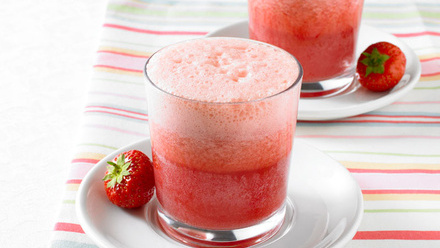Many people are trying to follow a plant-based diet or increase their intake of plant-based foods for health, ethical or sustainability reasons. But can you do this if you have irritable bowel syndrome (IBS)? Community Dietitian Chloe Hall, who has a special interest in Gastroenterology, explores the issue below.
I think I have IBS, what should I do?
Although symptoms such as diarrhoea, constipation, bloating and abdominal pain can indicate that you have IBS, these symptoms can, also, be related to other conditions such as Coeliac disease and inflammatory bowel disease (IBD). It is important to seek help from your GP to ensure that the appropriate blood and stool tests are done to rule these conditions out before self-diagnosing yourself with IBS, as the treatment for each condition is very different.
What is a plant-based diet?
A plant based diet is a diet which is made up of foods as fruit and vegetables, legumes, wholegrains and nuts and seeds, with little or no animal sources in the diet. A plant-based diet can include vegetarian and vegan diets. Find out more in our fact sheet.

Will a plant-based diet help my IBS symptoms?
Although there are many well-known health benefits of a plant-based diet such as reduced risk of some cancers and heart disease, there is no evidence that increasing your intake of plant-based foods will decrease your IBS symptoms, and for some people it could actually make them worse as it can increase the intake of fermentable carbohydrates (FODMAPs).
Increasing your intake of plant-based foods though can promote good bacteria in your gut, however, so if you can tolerate an increase of these foods then it could be beneficial; I usually suggest increasing your intake of plant-based foods slowly and monitoring your symptoms.
What is the low FODMAP diet and what foods does it restrict?
The low FODMAP diet has been found to reduce IBS symptoms in up to 70% of those with IBS1, and has three phases; a FODMAP reduction phase which lasts four to eight weeks, a re-introduction phase to identify trigger foods and a long term modified diet which avoids the trigger foods personal to you. The restriction phase restricts a number of foods including wheat, high lactose dairy foods, certain fruit and vegetables, onions and garlic. However, there are plenty of foods that you can eat whilst following the diet and any foods cut out during the restriction phase should be replaced by suitable alternatives e.g. an apple could be swapped for an orange.
Can I follow a plant-based diet and follow the low FODMAP diet?
Following a plant-based diet can already be restrictive if not well planned and a vegan diet, especially, can lead to Vitamin B12, iodine, calcium and omega-3 deficiencies. Doing the low FODMAP diet on top of this could lead to social restrictions and nutritional deficiencies. Both of these diets can, however, be done together safely with the right support and advice and a Dietitian can help you to ensure that it is done in a nutritionally balanced way.
A FODMAP ‘gentle’ approach may be easier and lead to less restrictions for those following a plant-based diet and this involves just removing a few very high FODMAP foods, rather than the full diet which excludes all high FODMAP foods.2
Are there other dietary options for treating my IBS symptoms rather than the low FODMAP diet?
The low FODMAP diet is not the best option for everyone, and traditional IBS dietary advice that focuses on reducing caffeine, a regular meal pattern, reduced fat and insoluble fibre intake and avoidance of gas producing foods such as onion, cabbage and beans, is a less restrictive option and can be effective for some people with IBS.3, 4 This option should be considered before starting on a low FODMAP diet. Click here for further information on IBS and dietary strategies.

Is there anything else that could help me manage my IBS symptoms?
There is some evidence that yoga can help people with IBS.5 In addition, cognitive behavioural therapy and gut-directed hypnotherapy can also be effective.6 Some medicines can also be prescribed to help with symptoms, so it is worth discussing this with your GP.
In conclusion, if you suspect that you have IBS, ensure that you see a health professional to ensure you have a proper diagnosis and ask for a referral to a Dietitian for advice on dietary options to help manage your symptoms.
References
- Peter R Gibson. ‘The evidence base for efficacy of the low FODMAP diet in irritable bowel syndrome: is it ready for prime time as a first-line therapy?’ Journal of Gastroenterology and Hepatology (2017) ;32(Suppl. 1): 32–35
- Halmos, E. P., and Gibson, P. R. ( 2019) Controversies and reality of the FODMAP diet for patients with irritable bowel syndrome. Journal of Gastroenterology and Hepatology, 34: 1134– 1142. https://doi.org/10.1111/jgh.14650.
- Böhn L, Störsrud S, Liljebo T, et al. Diet Low in FODMAPs Reduces Symptoms of Irritable Bowel Syndrome as Well as Traditional Dietary Advice: A Randomized Controlled Trial. Gastroenterology. 2015;149(6):1399-407.e2.
- Yeung W-y, Ng GW-b, Cheung W-h, et al. IDDF2021-ABS-0135 A randomized controlled trial comparing the effect of low fodmap dietary advice and nice dietary advice on symptom control and quality of life in chinese adults with irritable bowel syndrome. Gut. 2021;70(Suppl 2):A132-A.
- Schumann D, Langhorst J, Dobos G, Cramer H. Randomised clinical trial: yoga vs a low-FODMAP diet in patients with irritable bowel syndrome. Aliment Pharmacol Ther. 2018;47(2):203-11
- Ford AC, Quigley EM, Lacy BE, Lembo AJ, Saito YA, Schiller LR, et al. Effect of antidepressants and psychological therapies, including hypnotherapy, in irritable bowel syndrome: systematic review and meta-analysis. Am J Gastroenterol. 2014;109(9):1350-65; quiz 66.







